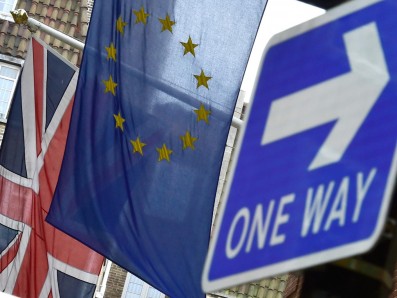
The High Court rejected the claim that the UK’s 15-year rule barring long-term expats from voting was illegal.
At the weekend the British High Court ruled against a legal challenge by two long-term British expats to have the controversial “15-year rule” rescinded, meaning that Brits who have lived outside the UK for more than 15 years will not be allowed to vote in the EU Referendum on June 23…
The case was brought by 94-year-old war veteran and Italian resident Harry Shindler, together with British lawyer Jacquelyn MacLennan, who resides in Belgium.
They claimed that the law barring Brits from voting in general elections and national referendums if they have not lived in the UK for 15 years or more was technically illegal under EU rules. The claimants were confident that they had a case, especially considering the words of Prime Minister David Cameron, who – on the election trail last May – pledged to scrap the law, calling it “unfair”.
However, the High Court found no cause to change the law right now, accepting the government’s concerns that such an upheaval this close to the vote would not only be impractical but would likely cause voting day to be pushed back.
Lord Justice Lloyd Jones and Mr Justice Blake said that there were “significant practical difficulties about adopting, especially for this referendum, a new electoral register that includes non-resident British citizens whose last residence in the UK was more than 15 years ago.”
Estimates vary, but approximately 700,000 Brits who currently live elsewhere in Europe would be unable to vote in June because of the 15-year rule. Adding these extra numbers to the electoral register would prove troublesome, despite repeated promises by the Conservative party that they would make this happen in the near future.
Responding to the ruling, an official spokesman for the Cabinet Office said: “The government welcomes the ruling of the High Court in this case. The franchise for the EU referendum was debated, considered and agreed by both Houses of Parliament and is enshrined in law.”
Mr Shindler expressed his disappointment in the outcome, stating that he is “saddened that there are still people in democratic Britain fighting for the right to vote.”
The issue has proved divisive across Europe, the UK and on the comment boards here at VIVA, with vocal proponents both for and against the 15-year rule.
The barrister who represented Shindler and MacLennan said that their rights – and the rights of thousands of other Brits – were being threatened by the ruling. “Britain’s membership of the EU means they can live and work in Europe, own property, retire there, and receive health care free at the point of use, paid for by the NHS,” said Aidan O’Neill QC.
The barrister and lawyers representing Shindler and MacLennan have said that they will now take their case to the Supreme Court, the highest in the land.
Despite the apparent clamour for a Brexit, opinion polls still put the Remain camp ahead, at 53% against 47% who want out of the EU. Brits who live abroad are three-quarters in favour of remaining in the EU, according to a recent survey by Angloinfo.
The Electoral Commission says that 106,000 overseas Britons registered to vote during the general election last May.
 en
en



 Vlaams-Nederlands
Vlaams-Nederlands
0 Comments
Leave a Comment
DISCLAIMER
The opinions and comments expressed by contributors to this Blog are theirs alone and do not necessarily reflect the views of VIVA Homes Under the Sun Ltd, any of its associated companies, or employees; nor is VIVA to be held responsible or accountable for the accuracy of any of the information supplied.
Have you got something to say?